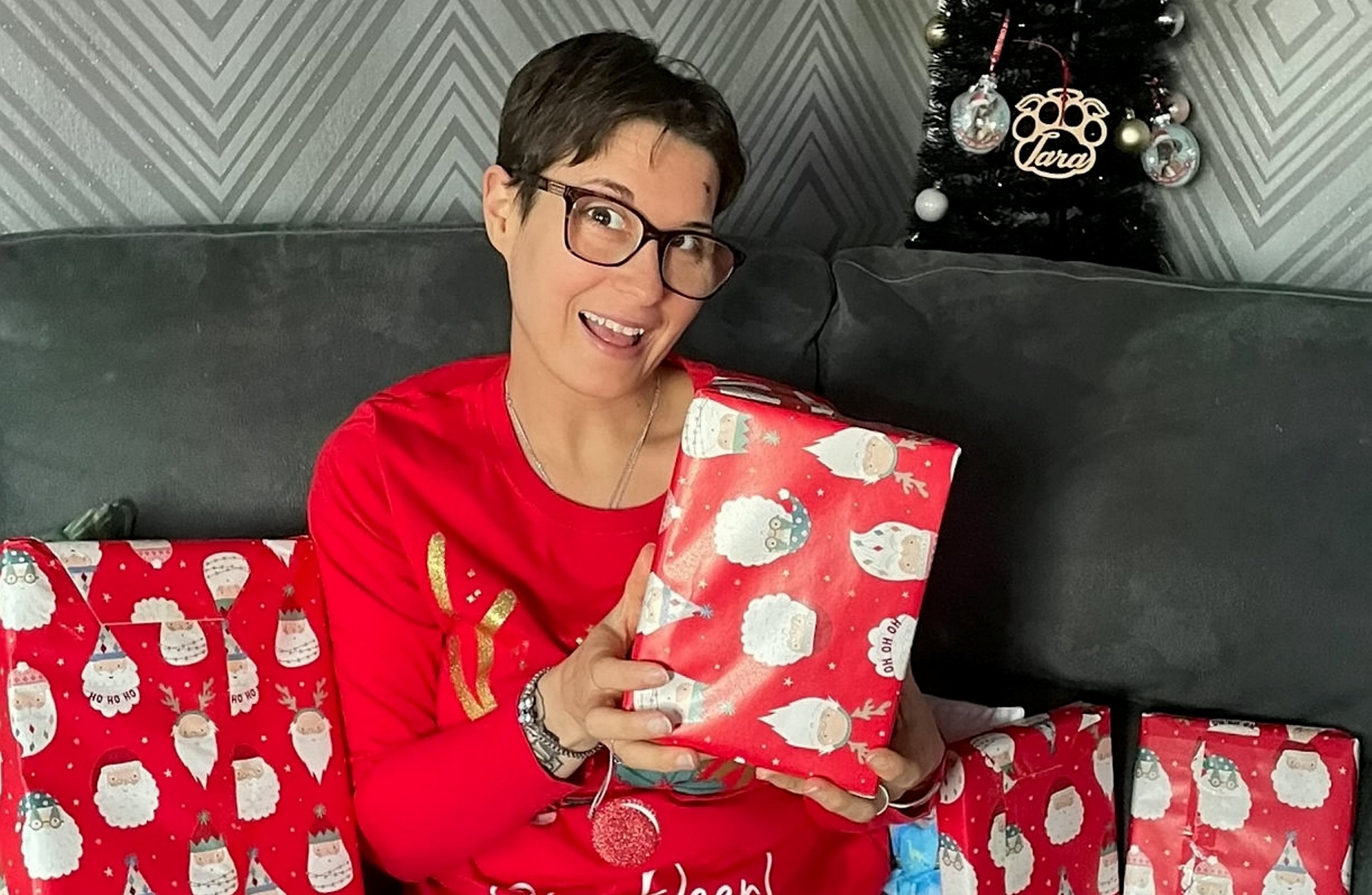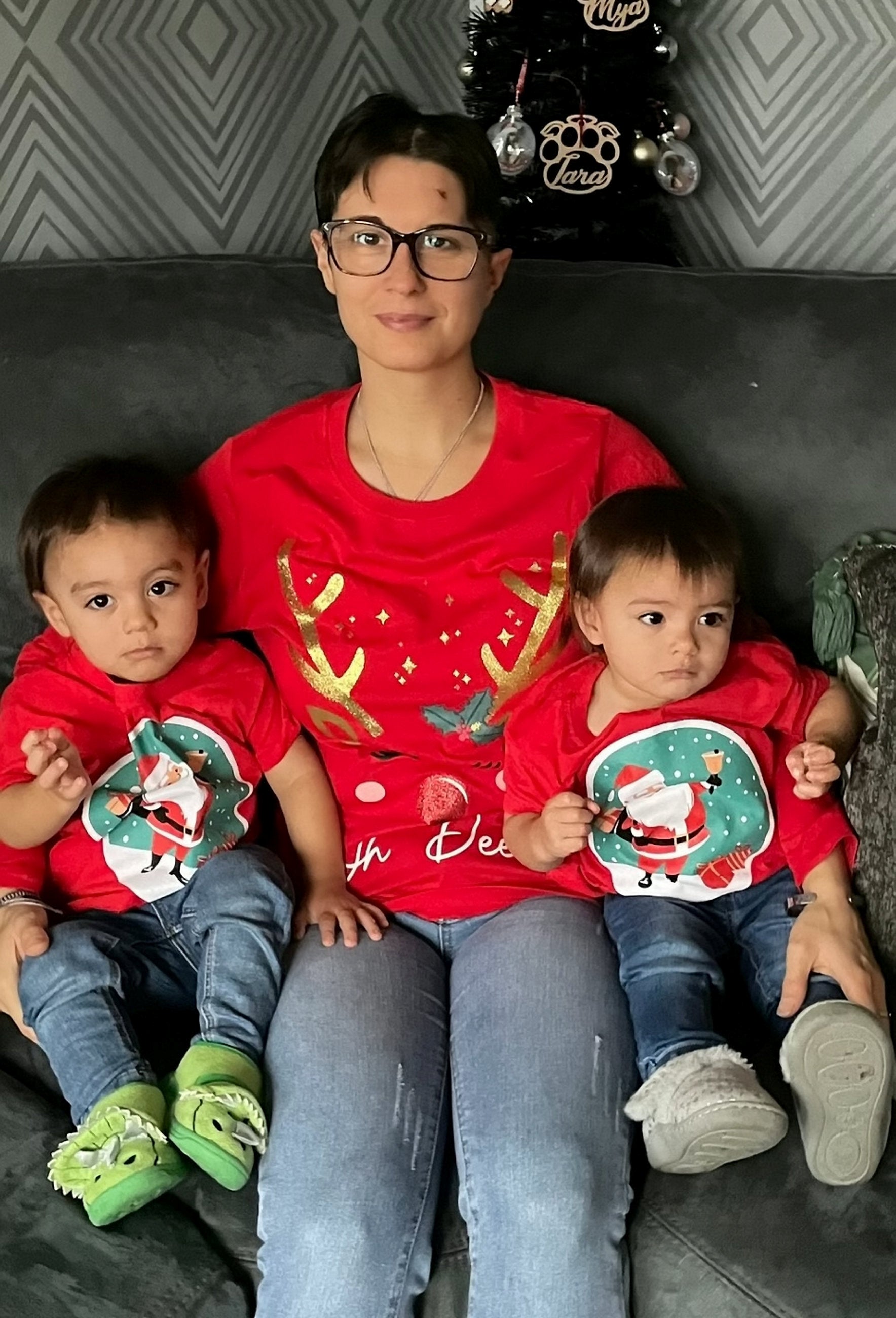Mother’s ‘Christmas miracle’ after being diagnosed with aggressive brain cancer
Kylie Weatherby, 34, was diagnosed with a glioblastoma (GBM) in May 2021

A mother-of-two who was diagnosed with an aggressive brain tumour is celebrating “a Christmas miracle” after being told she is clear from cancer.
Kylie Weatherby, 34, was diagnosed with a glioblastoma (GBM) – the same type of tumour as EastEnders character Lola Pearce – in May 2021.
Symptoms of glioblastoma typically include headaches that do not resolve with over-the-counter painkillers, nausea and vomiting, seizures, memory loss, difficulty with speech and unexplained fatigue.
Surgeons were only able to remove the tumour after Kylie gave birth to twins Luca and Malena in June 2021.
She then underwent six weeks of chemotherapy and radiotherapy.
Kylie, from Thetford, Norfolk, enjoyed more than a year of stable scans until last month when a MRI scan dealt her a shocking blow when it revealed regrowth of her tumour.
She went under the knife once again on December 5 to remove the tumour. And as she was recovering at home last week, she finally received some good news.
What surgeons had feared was a regrowth of Kylie’s GBM has now been identified as stage 2 pleomorphic xanthoastrocytoma (PXA), a rare but benign tumour that typically begins in the spine.
The latest growth is not brain cancer and Kylie’s surgeons have assured her they believe it to be fully removed.
Kylie said: “It’s wonderful news, I’m so relieved, and so happy.
“I’m feeling a lot better about everything, and stronger, even though my latest surgery has set me back a bit.
“Now I can focus on my babies and spending Christmas with them and the family I love.
“I feel very lucky to be able to enjoy a happy, healthy Christmas and plan to stay positive and keep appreciating my life each and every day.”

She added: “Apparently, 80-90% of people with this type of tumour go on to live a long life, which is a bit of a turnaround from being told it was a recurrence of my GBM.
“PXA and GBM look the same on scans and it’s unusual for people to be diagnosed with two different types of tumours, which is why I was told what I was and why samples taken during my last op have been sent for further testing.”
Kylie’s mum, Barbara Hollands, said: “I was ecstatic to hear it definitely wasn’t the GBM again.
“I cried when we left the room because we know her GBM can come back at any time. It really was a great Christmas present – you could call it a Christmas miracle.”
Charlie Allsebrook, community development manager for Brain Tumour Research, said: “Kylie’s been through so much already.
“To be told her GBM had regrown would have been devastating so to finally have some good news is fantastic, especially this time of year.
“We hope that she’s able to enjoy some quality time with her family this Christmas, and thank her and her mum for their continued support of the work we do.
“Brain tumours kill more children and adults under the age of 40 than any other cancer, yet, historically, just 1% of the national spend on cancer research has been allocated to this devastating disease.
“This has got to change but it’s only by working together that we will be able to improve treatment options for patients and, ultimately, find a cure.”



Join our commenting forum
Join thought-provoking conversations, follow other Independent readers and see their replies
0Comments